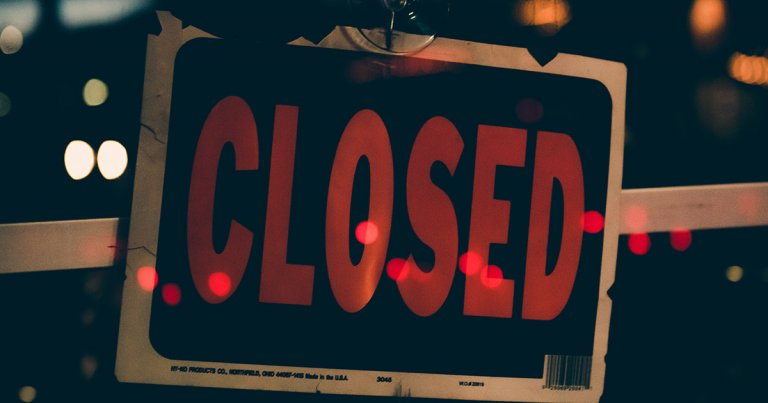 Why crypto? U.S. bank forcefully closed due to “longstanding capital” issues
Why crypto? U.S. bank forcefully closed due to “longstanding capital” issues Why crypto? U.S. bank forcefully closed due to “longstanding capital” issues

Cover art/illustration via CryptoSlate. Image includes combined content which may include AI-generated content.
Some say the timing was coincidental, but Bitcoin and the entire crypto ecosystem was born seemingly in response to the issues in traditional finance exposed by the 2008’s Great Recession, during which banks holding billions of dollars started to collapse.
Case in point: in the first-ever block of the network, its pseudonymous creator Satoshi Nakamoto embedded the following text into the first block: “Chancellor on brink of second bailout for banks,” a reference to a The Times headline from the morning the block was mined.
As the coronavirus has ravaged the global economy, bailouts have begun yet again as cracks have appear in institutions, leaving many to suggest that Bitcoin will “come of age” in this crisis, as put best by Dan Morehead of Pantera Capital.
U.S. bank fails
Per a report from American Banker published late last week, the Federal Deposit Insurance Corporation (FDIC) has announced the closure of The First State Bank of Barboursville in West Virginia. The bank held $152 million in assets and had four branches, which have been acquired by another local institution.
The FDIC indicated that The First State Bank has “experienced longstanding capital and asset quality issues, operating with financial difficulties since 2015.” The institution also purportedly had capital levels that were too low according to state and federal laws. It also indicated it will be directing a $46.8 million bailout, which will make up for the shortfall.
Although there are no signs that there will be a cascade of closures of larger U.S. banks caused by the coronavirus outbreak or other triggers, many in the Bitcoin space have taken this news.
Prominent Bitcoin commentator Dennis Parker remarked “Here we go” in response to the news, while VanEck’s digital asset director, Gabor Gurbacs explained that investors should expect “smaller regional bank closures in cash-heavy states” as individuals try and hoard cash in these trying times.
Here we go. pic.twitter.com/lSxfED5tpJ
— Dennis Parker⚡️ (@Xentagz) April 5, 2020
But where exactly does crypto fit into the equation of failing banks?
Enter Bitcoin & crypto
Yes, with FDIC, most, if not all, customers of the doomed West Virginian bank will have their accounts insured up to $250,000, which can be effectively guaranteed due to the FDIC’s ability to draw on capital from the U.S. Treasury.
In other words, the affected depositors likely aren’t crying out, begging for a way out of the fiat system.
Though, the FDIC isn’t perfect; Reuters recently revealed that around 40 percent of all bank deposits in the U.S. are not insured by the FDIC, meaning that depositors could lose their shirts if certain banks fail and are liquidated. The outlet says that it amounts to $5.8 trillion. Yes, trillion.
Furthermore, individual accounts with above $250,000 in deposits are not fully insured, also meaning that a bank failure could wipe out much of the wealthy’s capital.
Enter Bitcoin and crypto.
Even if there is no guarantee banks will fail amid the crisis, digital assets ensure that as long as the holder has secure and sole possession of the private keys, they’re the only ones with access to the coins. In other words, no centralized bank can fail to pay out your Bitcoin wallet balance, much unlike fiat.
More broadly, many think the current macroeconomic environment, whereas central banks are going big on printing money without the vote of the people, will strengthen the fundamentals of decentralization. As said by Chris Burniske:
“New technologies rise as old systems break, and often it takes a crisis to reveal the flaws of the old system in full.”



 CryptoQuant
CryptoQuant 





























































































